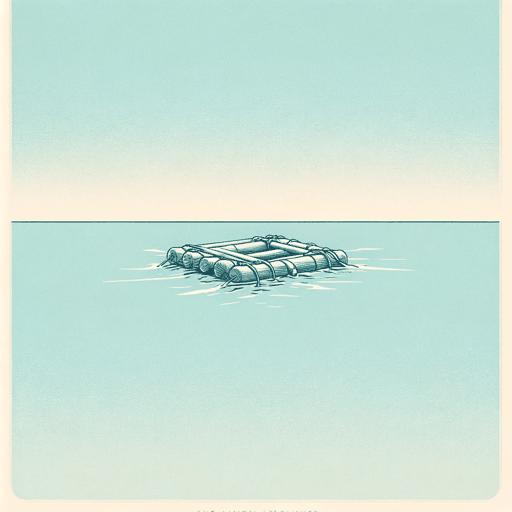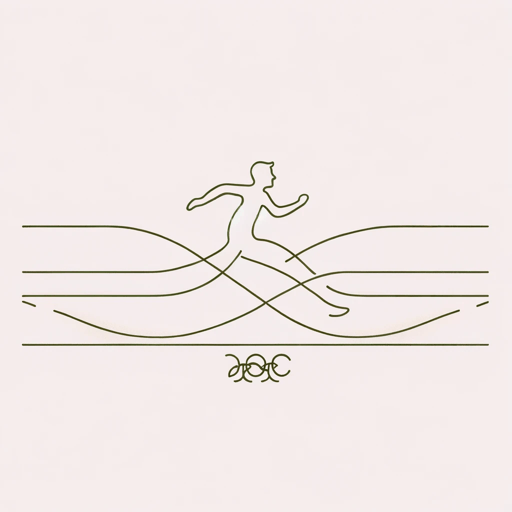59 pages • 1 hour read
Laura HillenbrandUnbroken (The Young Adult Adaptation): An Olympian's Journey from Airman to Castaway to Captive
Nonfiction | Biography | YA | Published in 2014A modern alternative to SparkNotes and CliffsNotes, SuperSummary offers high-quality Study Guides with detailed chapter summaries and analysis of major themes, characters, and more.
Summary and Study Guide
Overview
Unbroken: An Olympian’s Journey from Airman to Castaway to Captive (Adapted for Young Adults) by Laura Hillenbrand, first published in 2010, is a biography of World War II hero Louis Zamperini. An Olympic track and field runner at the 1936 Olympics, Zamperini’s training for the 1940 Olympics is disrupted by the outbreak of World War II. He joins the war and survives both a plane crash and the horrors of a POW camp. Hillenbrand, an American author of primarily nonfiction, is known for her 2001 nonfiction book Seabiscuit: An American Legend, which, like Unbroken, explores the themes of human resilience, strength, and perseverance against a backdrop of sports. This edition features illustrations, a simplified discussion of historical events, and the exclusion of some of the most horrific events of Zamperini’s experiences in the war but still depicts the hardships he experienced and the resilience he needed to overcome them.
This guide uses the Random House Children’s Books edition of the text published in 2017.
Content Warning: This guide discusses physical and emotional torture, as well as substance abuse, depression, and domestic abuse.
Summary
Unbroken opens with a scene from later in the text, as Zamperini, Phil, and Mac drift in the ocean, stranded on a raft. A Japanese plane flies overhead and shoots at the trio. Zamperini jumps overboard repeatedly to avoid fire.
Born in 1929, Louis Zamperini grew up in San Francisco, California, after his family emigrated from Italy. As a child, he regularly stole from other families, got into physical fights, and rebelled against his parents. However, after the principal threatens young Louie with expulsion, his brother, Pete, steps in and convinces the principal to allow Louie to join the school’s track team.
Louie discovers that he loves running and the peace he feels from it. He is also exceptionally good at it. He easily beats all of the high school competition in the mile run and sets a school record. He then moves on to college competition, where he bests those athletes as well. He trains day and night with hopes of going to the Olympics in Berlin in 1936.
With the Olympics drawing near, Louie realizes that he is not improving fast enough to qualify for the one-mile race. Instead, just weeks from the Olympic trials, he begins training for the 5,000-meter run. At the race, he ties for first, earning his place on the US Olympic team.
In Berlin, Louie trains hard but recognizes that he has little chance of winning—instead, he sets his sights on the 1940 Tokyo Olympics. In Berlin, he finishes in eighth place and runs one of the fastest last laps in history.
As Louie trains for Tokyo, however, World War II breaks out. Louie works in a factory and mourns the Olympics’ cancellation. He decides to join the Army Air Corps and is sent to Oahu in 1942.
In Oahu, Louie befriends Phil, his pilot. The two train together and become part of the best squadron on the island. Although there is initially little for the men to do, they explore the island and watch the seas for signs of Japanese planes. Eventually, they take part in the bombing of two Japanese bases: first at Wake and then at Nauru. Louie and Phil survive both, despite issues with their planes and attacks by Japanese bombers.
On May 27, 1943, Louie and Phil accept a mission to find a missing plane. They board the unreliable and difficult-to-pilot Green Hornet. The engine fails, and they crash into the ocean. Louie, Phil, and Francis “Mac” McNamara survive the crash but are stranded in the ocean aboard two rafts.
The three men battle thirst, hunger, and the sharks that surround their raft. A Japanese bomber attacks and destroys one raft. The three men must repair the remaining raft. Mac, mostly comatose and in shock, eventually dies and leaves Louie and Phil to survive over 40 days on their own. They finally drift to the Japanese-controlled Marshall Island.
On Marshall Island, Louie and Phil receive beds and food and the Japanese there generally treat them well. However, after a few days, their captors transfer them to Kwajalein, nicknamed “Execution Island.” While there, they occupy primitive cells, receive little food, and undergo medical experimentation and ruthless interrogation. After 42 days, in September of 1943, Louis and Phil arrive in Japan at the POW camp Ofuna.
At Ofuna, Louie and Phil experience even worse treatment. Along with the other POWs, they suffer malnourishment, regular beatings, and total domination of their wills. Eventually, their captors transfer Phil to another POW camp, and in September of 1944, they send Louie to Omori.
In Omori, Louie comes face to face with the Bird, a ruthless guard who delights in the physical and mental torture of the POWs. He makes it his mission to break Louie and subjects him to constant abuse. He regularly beats Louie, forces him to clean the latrines, and starves him. Although Louie receives a brief reprieve when the Bird transfers to a different camp, Louie again encounters him at Naoetsu POW, his next camp, in January of 1945.
Meanwhile, Allied forces advance into Japan and regularly bomb major military sites in an attempt to force Japan’s surrender. Back home, Louie and Phil’s families continue to believe that the airmen are alive, despite the military’s abandoned search efforts for their downed plane. The military issues official death notices for both.
At Naoetsu, Louie endures freezing weather and poor rations. He works on dangerous coal ships and the Bird relentlessly torments him. In one instance, the Bird forces Louie to care for an ailing goat and informs him that his life depends on the goat’s survival. When the goat dies, the Bird forces Louie to stand outside holding a large beam in the air. The Bird orders an underling to beat Louie each time he attempts to lower it. Through it all, however, Louie remains strong. He embraces faith as a source of strength through his struggles. Additionally, along with the other men in the camp, he finds solace by stealing from the guards to improve their conditions.
Through months of miserable conditions, Louie sustains an injury to his leg, becomes extremely ill, and faces malnutrition, which leaves him emaciated. Word finally reaches the camp that the war is over. In August of 1945, Allied forces begin airdropping supplies to the POW camps and Louie is released. He boards a train with the other prisoners and eventually makes his way back to the United States. Phil also returns to the US.
For years after his return to civilian life, Louie struggles with PTSD, suffers vivid flashbacks of his experiences in the war, and images of the Bird haunt him each night. He meets and marries Cynthia, and the two have a daughter, yet Louie is unable to escape his memories of the war. He becomes obsessed with finding and killing the Bird and turns to alcohol to ease his trauma.
On the verge of divorce with Cynthia, Christian evangelist Billy Graham sets up a tent in Los Angeles. Cynthia forces Louie to go. As he hears Graham speak, he remembers moments from the war that inspired his faith in God and gave him strength. Renewed, he returns home and dumps his alcohol bottles out. From that day forward, he no longer dreams of the Bird or experiences flashbacks to the war.
Louie dedicates the rest of his life to helping young boys who struggle. He speaks of his experiences in the war and uses his past to inspire them. He travels around the world and speaks of his journey while he renews his relationship with Cynthia. When he visits his guards from the POW camp—now imprisoned in Japan—he realizes that he no longer holds any hate or anger toward them. Instead, he is ready to forgive them.
When he learns that the Bird survived all of these years and now lives in Tokyo, he writes him a letter. He tells the Bird that he no longer feels hate for him and forgives him for what he did to Louie during the war. The Bird, however, refuses to meet him, and it is unclear whether he ever sees Louie’s letter.
As the text closes, Louie runs the torch through Japan at the 1998 Olympics, past where he was imprisoned, and realizes there is no longer any trace of the horrors he experienced. He instead sees the happy Japanese civilians and the Japanese soldiers who part to let him pass.
Related Titles
By Laura Hillenbrand



